Top 20 Superfoods You Should Eat Every Day After Age 50

You are what you eat—especially when it comes to healthy aging and disease prevention. "Good nutrition across the lifespan helps prevent chronic disease — and we know that it's never too late to make improvements to support healthy aging," says the U.S. Department of Health and Human Services. "Older adults are at greater risk of chronic diseases, such as heart disease and cancer — as well as health conditions related to changes in muscle and bone mass, such as osteoporosis. The good news is that this population can mitigate some of these risks by eating nutrient-dense foods and maintaining an active lifestyle." Here are 20 superfoods you should eat every day after age 50.
Dark, Leafy Greens
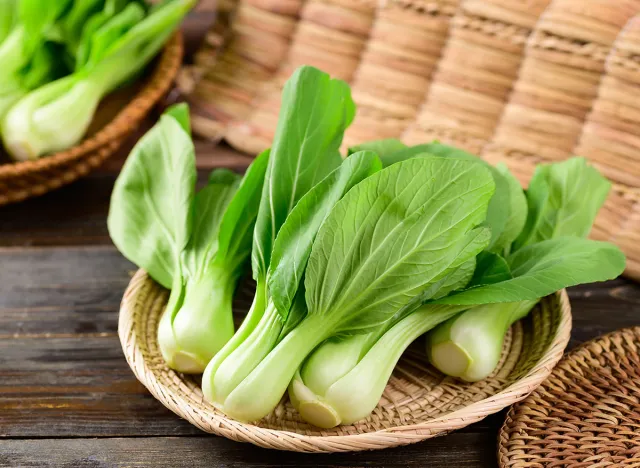
Dark leafy greens should be included in your diet several times a week. "Leafy greens such as kale, spinach, and bok choy are packed with vitamins, minerals, and antioxidants, which can help lower blood pressure and reduce the risk of heart disease," according to Harvard Health. "Leafy greens are rich in nitrates, which help to relax and widen blood vessels. Research has found that people who ate the most nitrate-rich vegetables (especially leafy greens) lowered their risk of cardiovascular disease by 12% to 26%."
Wild Blueberries
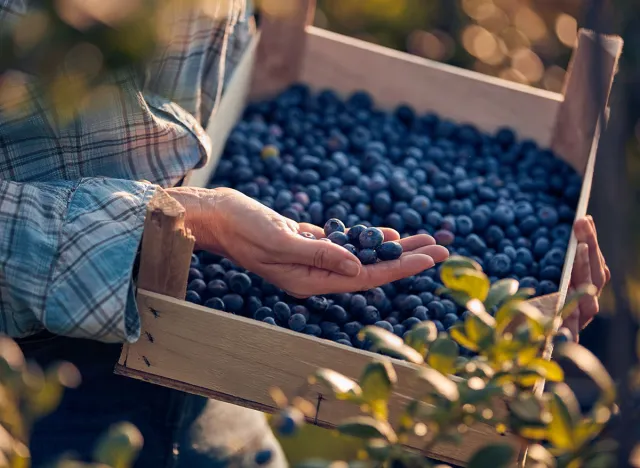
Wild blueberries are a powerhouse of nutrition. "They have three or four times the antioxidants of conventional blueberries," Alicia Arbaje, MD, tells AARP. "Add them to your oatmeal or smoothies."
Eggs

Eggs are good for you no matter what your age, but they have specific benefits for those over 50. "Eggs are an inexpensive, widely available and easily digestible source of high-quality protein and contain a significant proportion of leucine, an amino acid that is important for muscle synthesis," according to research published in the British Journal of Community Nursing. "As well as many other nutrients of significance for older people, including vitamin D and omega-3 fatty acids."
Fatty Seafood
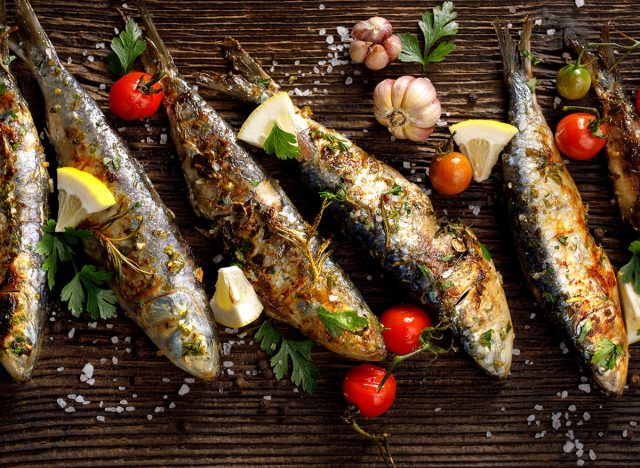
Fatty seafood such as salmon is packed full of omega-3s that can help lower the risk of heart disease. "Although eating fish has long been considered part of a healthy diet, few studies have assessed blood omega-3 levels and total deaths in older adults," Dariush Mozaffarian, associate professor in the Department of Epidemiology at HSPH, tells The Harvard Gazette. "Our findings support the importance of adequate blood omega-3 levels for cardiovascular health, and suggest that later in life these benefits could actually extend the years of remaining life."
Avocados
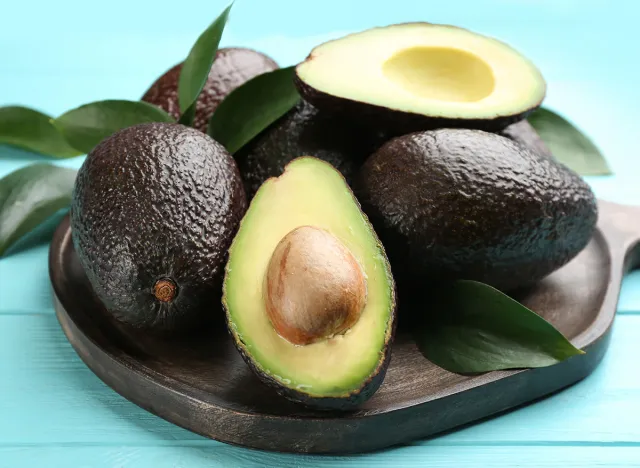
Studies show that consuming avocados can help support memory as you age. "One of my key research agendas is to understand how we can prevent neurodegenerative diseases and preserve cognition as we age," says Matthew Taylor, PhD, RD, assistant professor in the Department of Dietetics and Nutrition in the School of Health Professions at KU Medical Center. "If you look at avocados, they are very nutrient-dense and have some unique properties, including carotenoids, that are thought to be beneficial to cognition. We hypothesized that there may be a connection, and we found there was."
Whole Grains
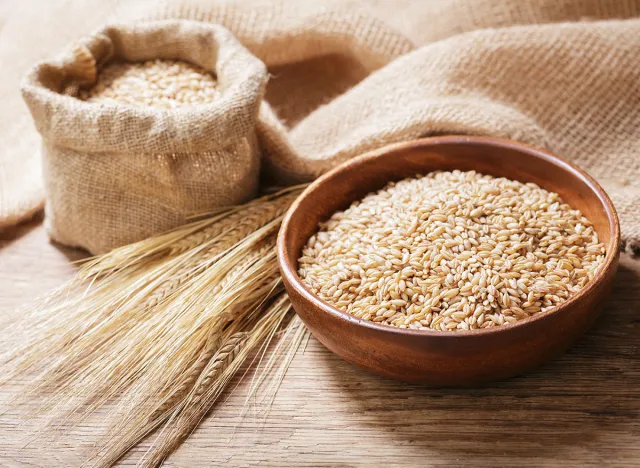
Whole grains are high in fiber, which have numerous health benefits. "Studies show high-fiber diets lower the risk of: Heart and blood vessel diseases, stroke, type 2 diabetes, cancer of the large intestine and rectum, also called colorectal cancer," says the Mayo Clinic.
Nuts
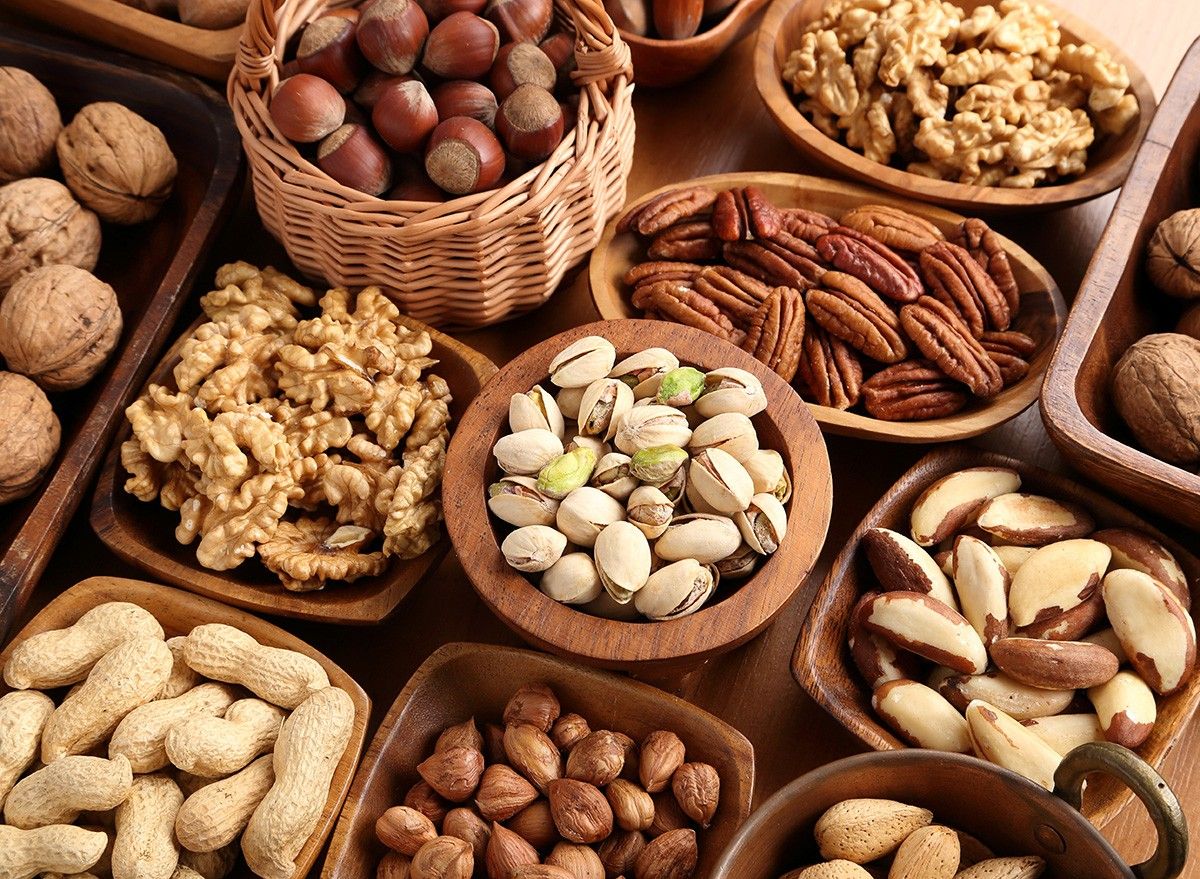
Nuts are nutrient-dense and can promote healthy aging. "We found that people who ate nuts every day lived longer, healthier lives than people who didn't eat nuts," says Dr. Frank Hu, professor of nutrition and epidemiology at the Harvard School of Public Health. "Nuts are high in protein and fiber, which delays absorption and decreases hunger."
Beans
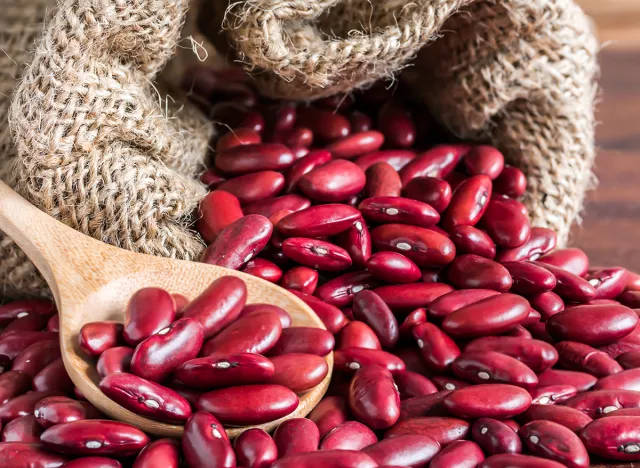
"Whether canned or dried, beans are a great food to incorporate in the diet for people 50 and over," registered dietitian Tara Tomaino tells HuffPost. "Beans are a great source of fiber as well as plant-based protein. Fiber is a key nutrient for heart health, blood-sugar management and weight control."
Greek Yogurt
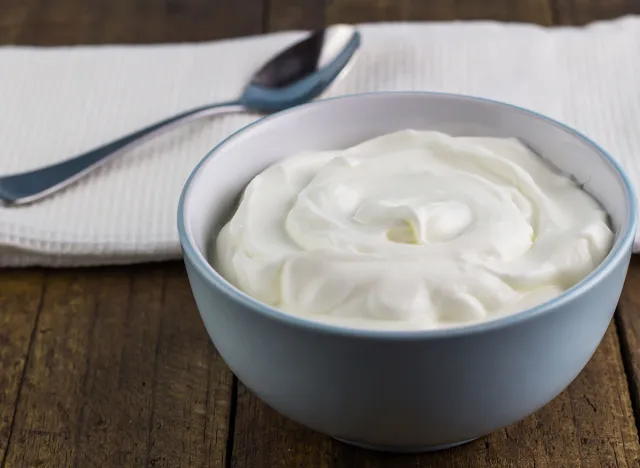
Greek yogurt is versatile and packed with protein and healthy fats. "Just one cup has 17 grams of protein as well as 20% of the daily recommended intake of calcium," says the National Council on Aging. "Why else is Greek yogurt considered one of the best superfoods for seniors? It contains probiotics, which help us maintain gut health. Probiotics have been shown to aid in digestion, boost immune function, and even prevent infection."
Citrus Fruits
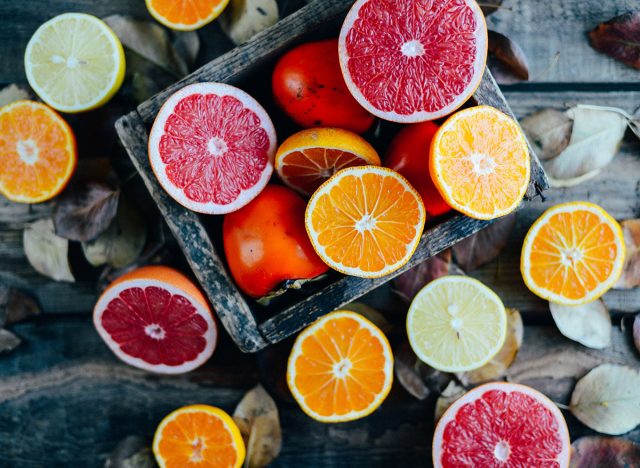
Citrus fruits are great for immune health and iron absorption. "Citrus fruits, including oranges, lemons, limes, grapefruits and clementines, are an excellent source of vitamin C," dietitian Tori Erickson tells Mayo Clinic Health System. "And vitamin C supports your immune system, which plays a role in maintaining healthy skin, bones and blood vessels. Vitamin C also improves absorption of iron when consumed with plant-based sources of iron, such as beans, lentils, leafy green vegetables, tofu and blackstrap molasses."
Plenty of Water

"Your body needs plenty of fluid to work properly, such as helping to stop you getting constipated or confused," says Nidirect. "Aim to drink about six to eight glasses of water, or other fluids, every day to stop you getting dehydrated."
RELATED: I Walked 10,000 Steps Every Day for a Month Without Dieting — Here's What Really Happened
Olive Oil
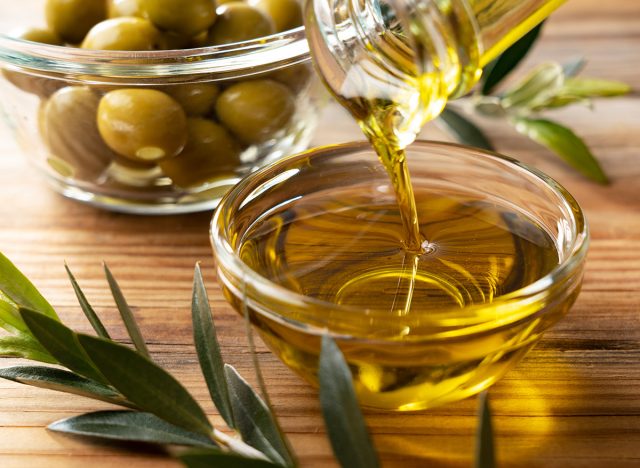
Studies show healthy fats like olive oil are beneficial for heart health. "Olive oil is a good source of vitamin E, polyphenols, and monounsaturated fatty acids, all of which help reduce the risk of heart disease," Mallika Marshall, MD, tells Harvard Health.
Green Tea
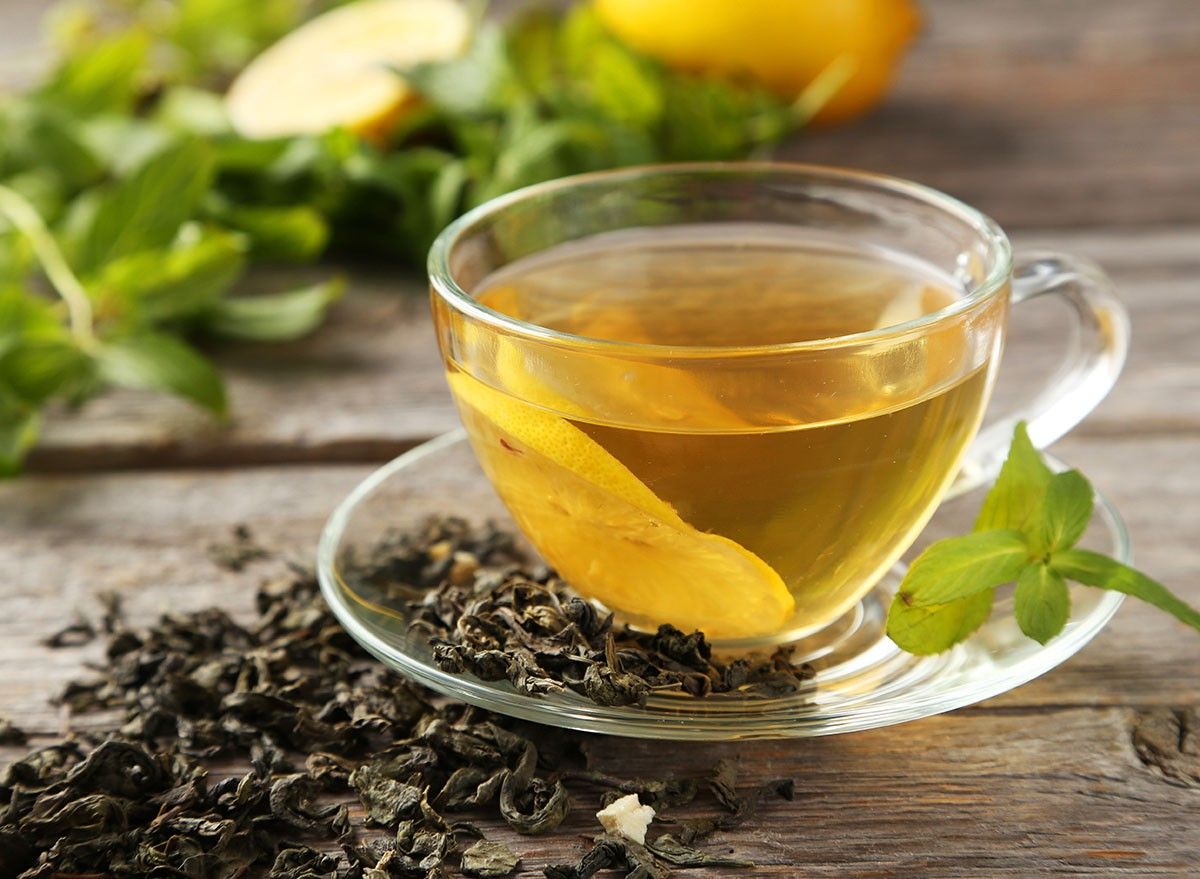
Enjoy delicious green tea every day. "Green tea is known as a 'superfood' and the 'ultimate anti-aging drink'. Made from the Camellia sinensis plant, green tea's leaves are unfermented, unlike black and oolong teas," certified trainer Jennifer Campbell tells the American Legion. "This gives them the highest level of antioxidants. In Okinawa, Japan – one of the world's Blue Zones, known for residents' longer, healthier lives – drinking green tea is a daily diet staple."
Dark Chocolate
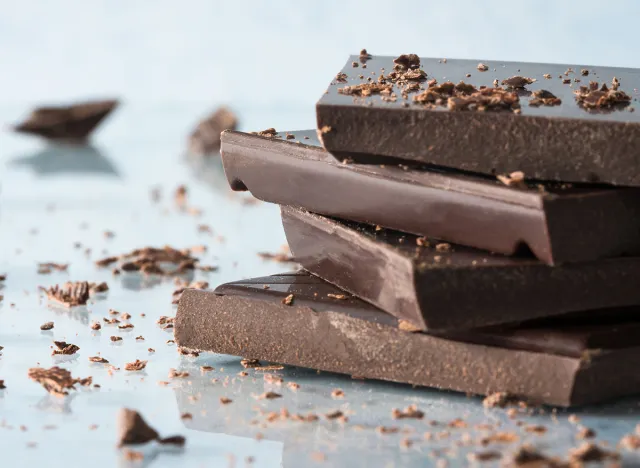
Dark chocolate is an excellent choice for dessert. "The different antioxidants in combination with the plant-based chemicals called flavanols have shown evidence of getting more hydration in the skin, have shown evidence of having an anti-aging benefit to it," dermatologist Dr. Danilo Del Campo tells USA Today. "Some studies have shown evidence for having anti-acne properties, but the same does not apply to milk chocolate."
Cottage Cheese
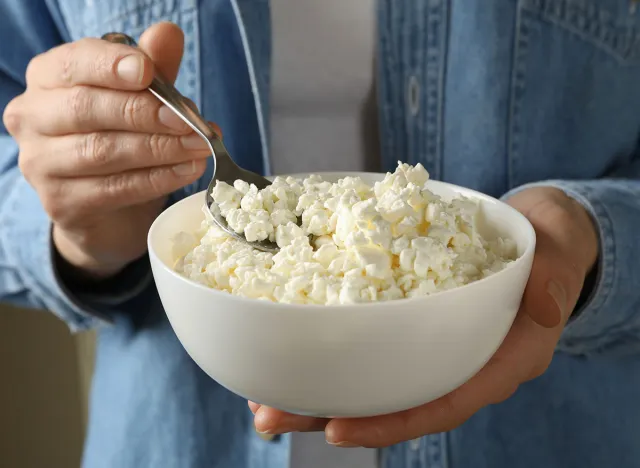
Cottage cheese is packed with protein, calcium, and phosphorus. "Bone health is critical as you age," Julia Zumpano, RD, LD, says via Cleveland Clinic. "Adding cottage cheese to your diet is an easy way to strengthen them."
RELATED: 17 Surprising Fat-Blasting Tricks for Women Over 50
Milk and Dairy
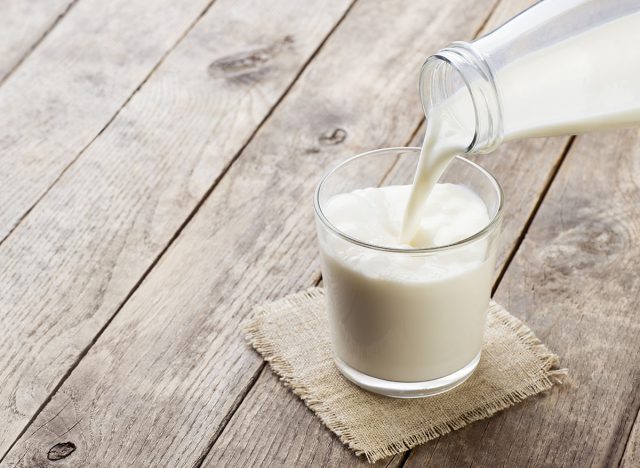
"Milk products provide high-quality protein," Lisbeth Irish, RDN, CDN, CDCE, tells the Office for the Aging. "Low-fat or no-fat milk, cheese, and yogurt limit the saturated fat content, and many lactose-free products are now available. Be aware that milk alternatives other than soy milk often contribute very little protein and may be expensive."
Quality Protein
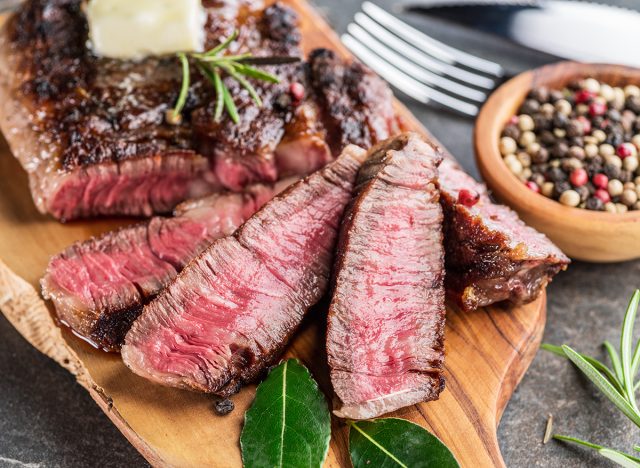
Good quality protein is essential for healthy aging. "By the age of fifty, muscle mass decreases at an annual rate of 1-2%. The lost muscle is often replaced by fat," Dr Gabrielle Lyon tells The Telegraph. "Really good-quality meat – by which I mean grass-fed and organic – should be considered a superfood because it delivers so many of the nutrients we need, including iron, zinc, calcium and vitamin B12. It's also a natural source of creatine, which may improve short-term memory."
Cooked Shellfish
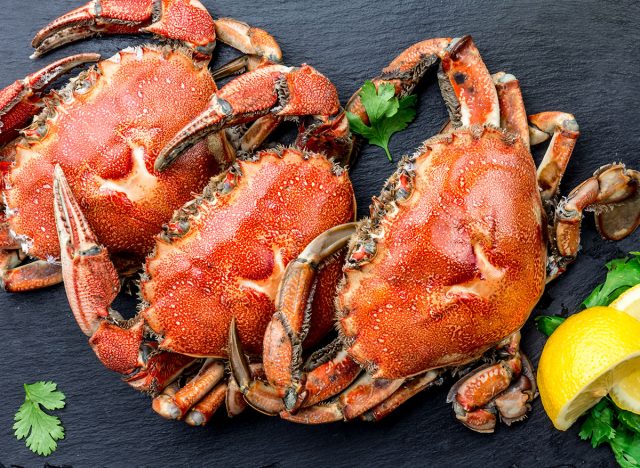
Shellfish are low in calories and high in nutrients such as selenium, zinc, iodine and copper. "Some types of shellfish, such as mussels, oysters, squid and crab, are also good sources of long-chain omega-3 fatty acids, but they do not contain as much as oily fish," says the NHS.
Cruciferous Veggies
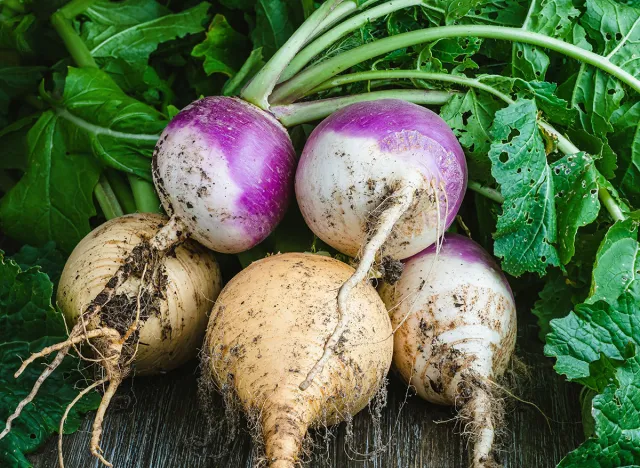
Cruciferous vegetables are delicious and nutritious. "This veggie family includes broccoli, cabbage, Brussels sprouts, and turnips—all of which are great sources of fiber, vitamins, and cancer-preventing phytochemicals," says the National Council on Aging. "Cruciferous vegetables are tasty and extremely versatile."
RELATED: I Lost 110 Pounds by Walking, Here Is What Really Matters
Red Wine
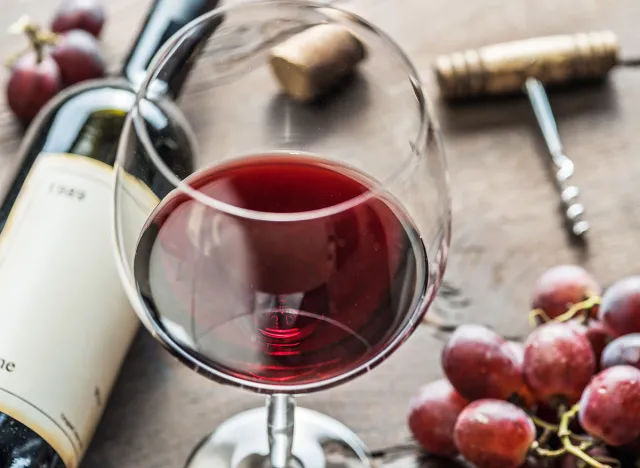
While more research is needed, studies show red wine could have health benefits. "Those who drink regular, limited amounts of alcohol, including red wine, seem to have a lower risk of heart disease. Drinking regular, limited amounts is called drinking in moderation," says the Mayo Clinic. "The American Heart Association and National Heart, Lung, and Blood Institute advise against starting to drink alcohol just to prevent heart disease." And if you enjoyed this article, take advantage of these 15 Quick Ways to Lose Body Fat Percentage in a Week.




